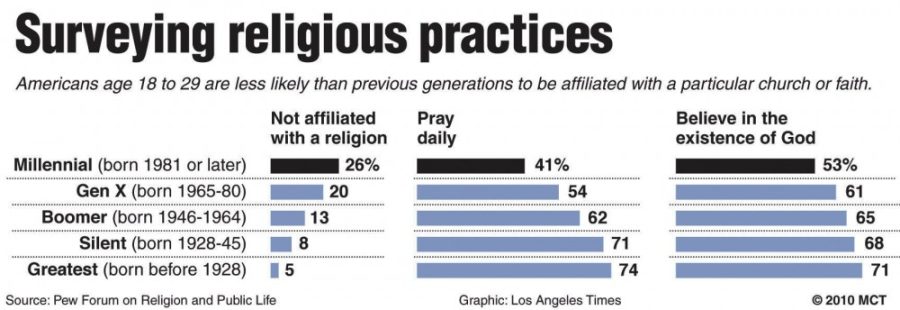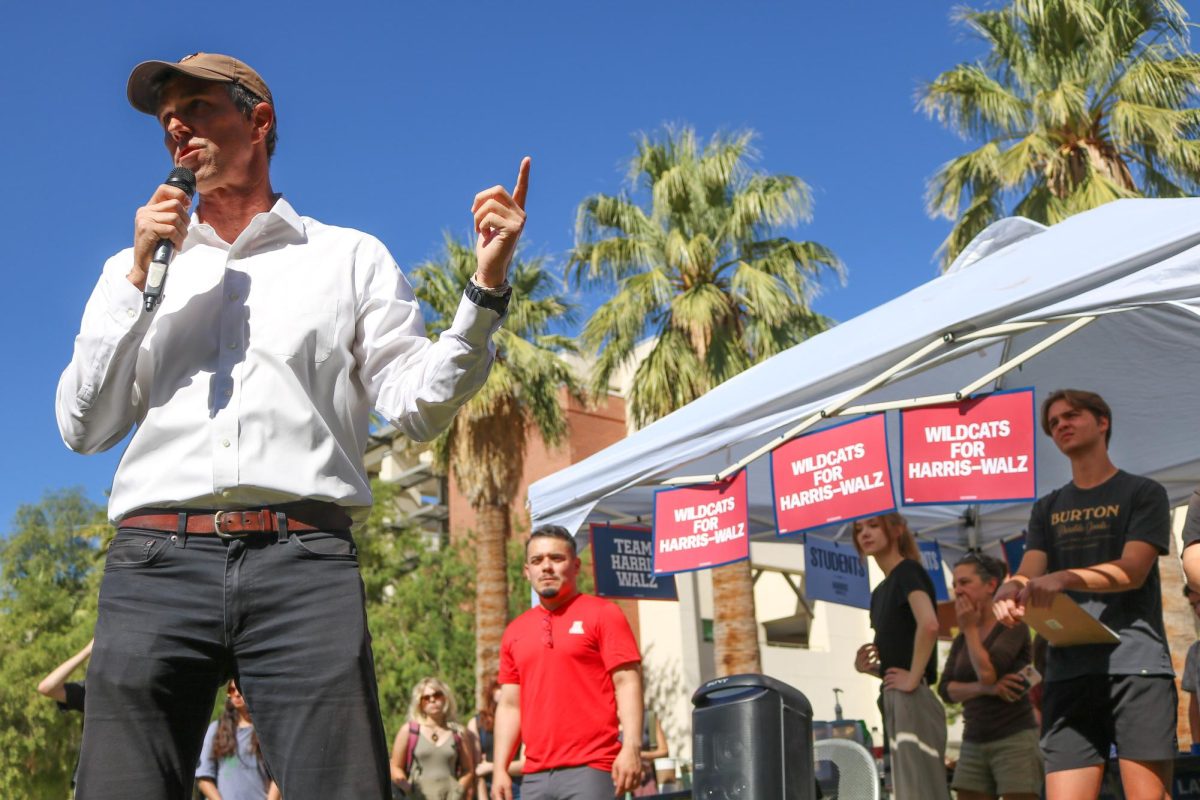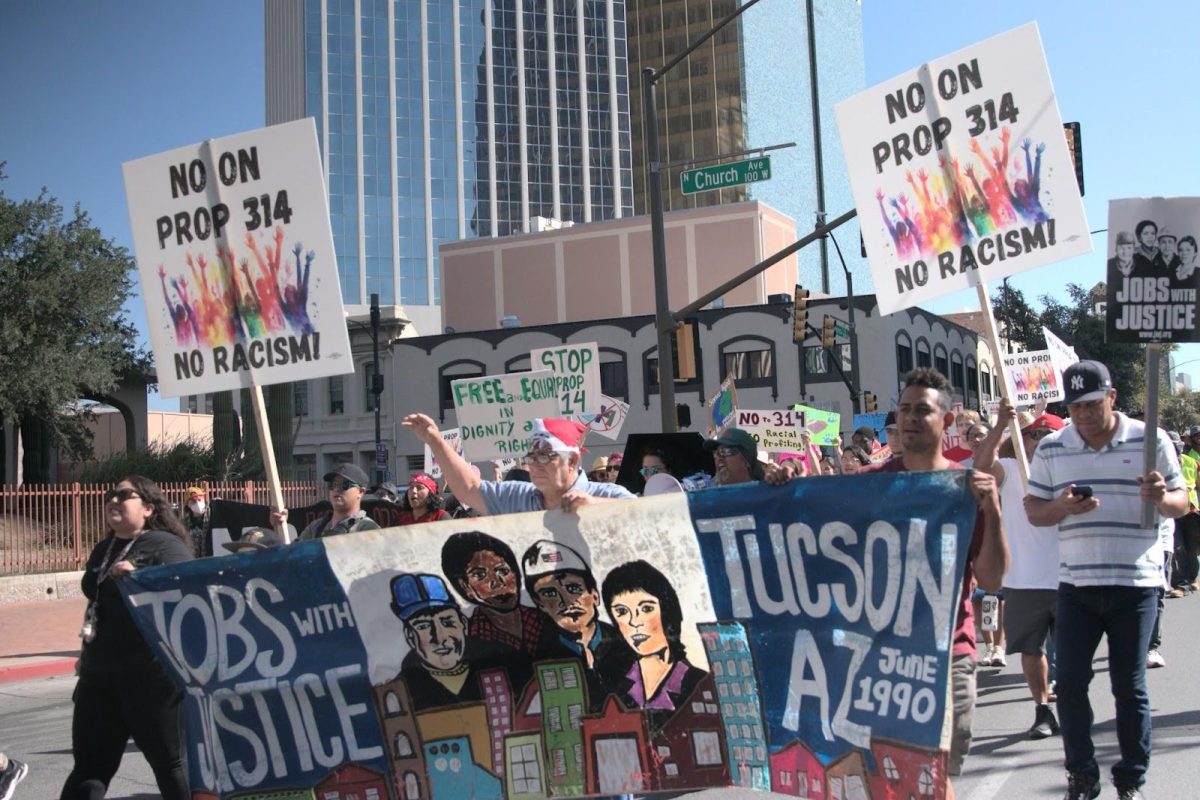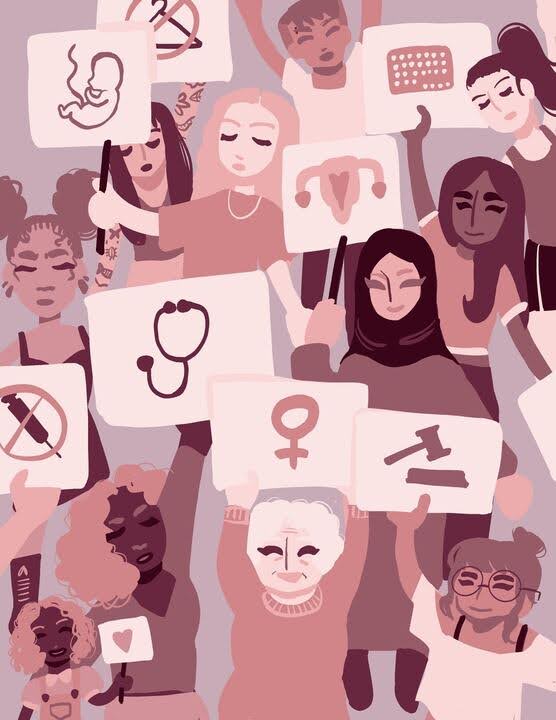Davante Metoyer has considered himself a Christian his whole life. But lately, he’s been less inclined to tell people.
“I’m starting to like, be embarrassed to say I’m Christian, only for the fact that so many people are putting negative connotations to the Christian community, like calling gay people out,” said Metoyer, a pre-physiology sophomore.
Religion in America undergoes constant change and is very diverse, according to a survey conducted by the Pew Research Center. It’s becoming more popular to not claim any religious affiliation, as evidenced by the 1 in 4 young adults who claimed no religious affiliation in the survey.
Contemporary politics play a role in the separation from organized religion among the young. Most Americans say they would like politicians to talk less about religion, according to another Pew Research Center study published in March 2012.
The growing connection between political and religious views creates a stereotype that college-aged individuals do not want to be associated or affiliated with. Religious open-mindedness is becoming a modern trend, according to experts in the UA’s religious studies department.
Karen Seat, an associate professor of classics, said these ideas of tolerance and acceptance seem to be most catered to by the freedom of not being affiliated with organized religion. But many students hold onto religion, though they deal with being judged as well.
“When people think about Christianity, (they think) Christians are all conservative, they’re all anti-gay,” said Maizie Simpson, a journalism sophomore. “I’m not like those people that are on the extreme side, so really I am less inclined to tell people that I am a Christian, because I don’t want them looking at me with that distorted view.”
After attending Christian schools as a child, Simpson continues to attend church and is a member of the Navigators, a Christian club on campus. She said she understands why some people, especially college students, might begin to become independent from organized religion.
“It is a time of transition. It’s where you’re out on your own discovering what you want,” Simpson said. “This is your time to explore everything, try different things, find out what works for you and make your faith your own or decide you don’t want faith.”
American culture encourages a sense of independence for those between 18 and 29, Seat said. Twenty-eight percent of adults left the religion they were raised in, according to the survey. This includes those who claimed no religious affiliation or those who changed to a different religion or denomination.
“Ever since living on my own I have started to have my own thoughts about religion, and such, and I wouldn’t say I affiliate myself with organized religion anymore, just because I personally don’t agree with religion as an organization of people,” said Blake Aaron, a pre-physiology sophomore.
This age group tends to try out new belief systems and not necessarily claim a specific one, Seat said. It’s a time of exploration where people create their own lives and decide their own values, she said, separate from those of their parents.
“The college life doesn’t propound to, you know, getting up at 10 to be in church,” said Hester Oberman, an adjunct professor in religious studies.
For most, the exploration and lack of affiliation with religion is just a phase, Oberman said. As Americans begin to have a family or get married, he said, they go back to a religious affiliation and a tight-knit spiritual community.
“Religion becomes more important with birth and with death,” Oberman said.
For some, young adulthood encourages a phase of exploration, while others see religion as a cultural connection to their family even when they leave home. Ricky Silver, a veterinary science freshman, is in the Jewish Arizonans on Campus club. He said his ancestral history keeps him connected to Judaism.
“I think since the Holocaust everybody has come together and has kept the (Jewish) tradition alive,” Silver said.
Though some believe secularism in America is on the rise, the U.S. is still considered to be highly religious compared to the rest of the world. According to the Pew survey, of the 16.1 percent unaffiliated Americans, 1.6 percent are atheists, 2.4 percent are agnostic, 6.3 percent claimed to be secular unaffiliated and 5.8 percent claimed to be religious but unaffiliated.
“There’s definitely never a dull moment in religion in America,” Seat said. “It’s always in flux.”









